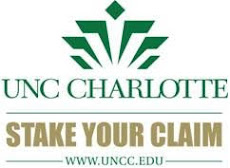The following is a message from Chancellor Philip L. Dubois to the UNC Charlotte campus community
November 27, 2012
Before the Thanksgiving break, I issued a statement to the campus community about campus safety in the wake of a recent report of a possible sexual assault in the Fretwell Building. To ensure that all members of the community are properly informed, I am reissuing that statement today with some additional information I want you to have.
As indicated last week, you should know first and foremost that our own Department of Police and Public Safety, with the assistance of the Charlotte-Mecklenburg Police Department, is carefully and vigorously investigating this reported incident. The University’s full resources are devoted to assisting the investigation, but the collection and review of evidence will be a deliberate process.
In the meantime, UNC Charlotte continues to implement improvements to ensure that our campus is a safe place to live and work. As shown by the University’s most recent Annual Security Report, reported crime in virtually every category has decreased consistently in recent years. That’s a particularly important fact to consider in light of the expansion of the student population by more than 25 percent since 2005.
It is also important to know that we are constantly assessing the resources allocated for campus safety and security. In response to a request earlier in the year, I have recently allocated funds to provide even more sworn officers on campus. Police Chief Jeff Baker and I agree that all of these new officers will be dedicated to foot and bike patrols.
We also continue our work with the Student Government Association on its annual “Safe Walk” program to identify campus safety and security issues that require attention. Thus far, more than $1 million has been allocated to address the issues identified by this program, which sends out SGA representatives and University staff in an evening inspection of the campus. I have reserved funds to address the results of this year’s Safe Walk once SGA has completed its report and submitted it to me.
Notably, our safety-related investments have not been limited to those discovered through Safe Walk. UNC Charlotte has made an additional investment of nearly $5 million in a range of safety and security initiatives including improved lighting in the parking decks, state-of-the-art door access systems (which should be completed this year), the SafeRide program, the installation of parking lot watch towers and building security cameras (of which there are more than 360 across campus), and expansion of the campus network of “blue light” emergency telephones to more than 300.
With that said, it is obvious to nearly everyone that there is more to be done. Of particular concern are areas on campus where additional lighting is needed and where additional security monitoring might be helpful. We also need to rethink the routes, schedules, and stops related to SafeRide. I have asked Jesh Humphrey, chair of the Chancellor’s Campus Safety and Security Committee, to work with Police Chief Baker and other members of that Committee to provide me with a report and recommendation on these issues early in the spring semester.
For those of you who may not know, the Chancellor’s Campus Safety and Security Committee, which was chartered in 2008, is comprised of faculty, staff, and students who carefully review and provide recommendations for security measures which have been instituted across campus. The Committee’s Safety and Security Report from earlier this year, as well as information regarding the Committee’s work and membership, can be found at http://campussafety.uncc.edu. You are welcome to communicate with the Committee should you have additional ideas for their consideration.


